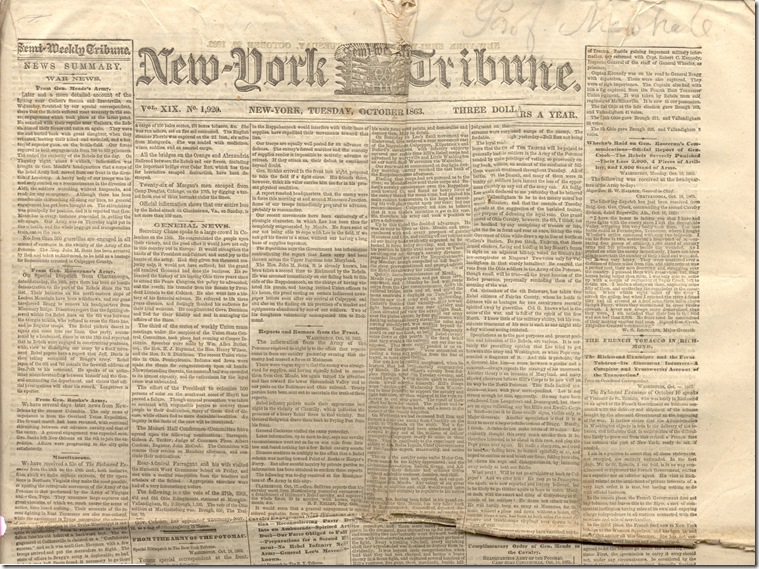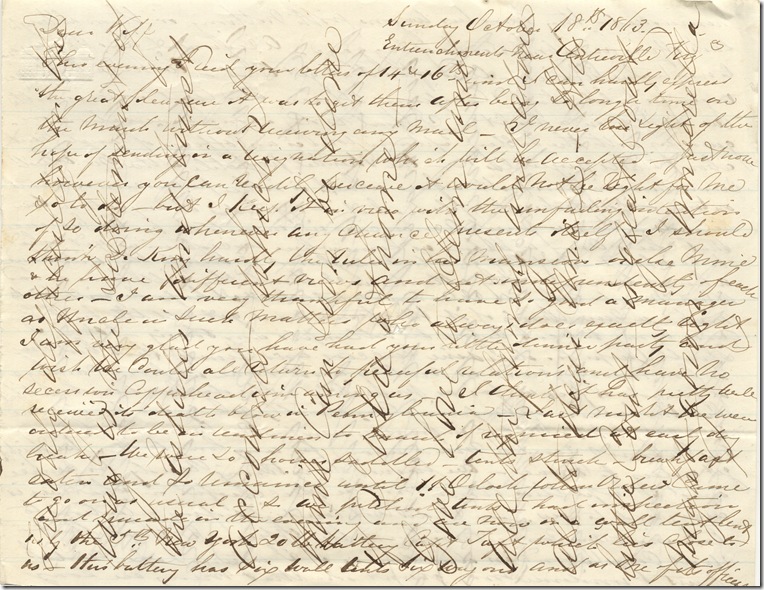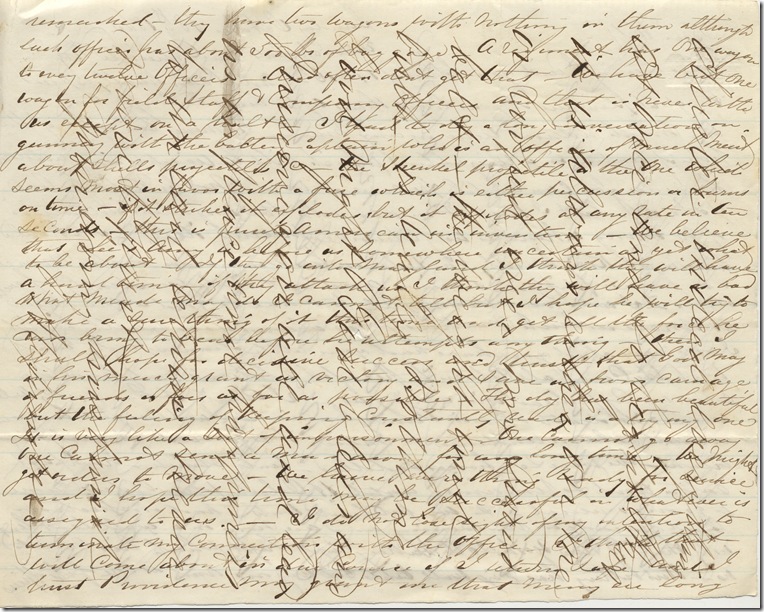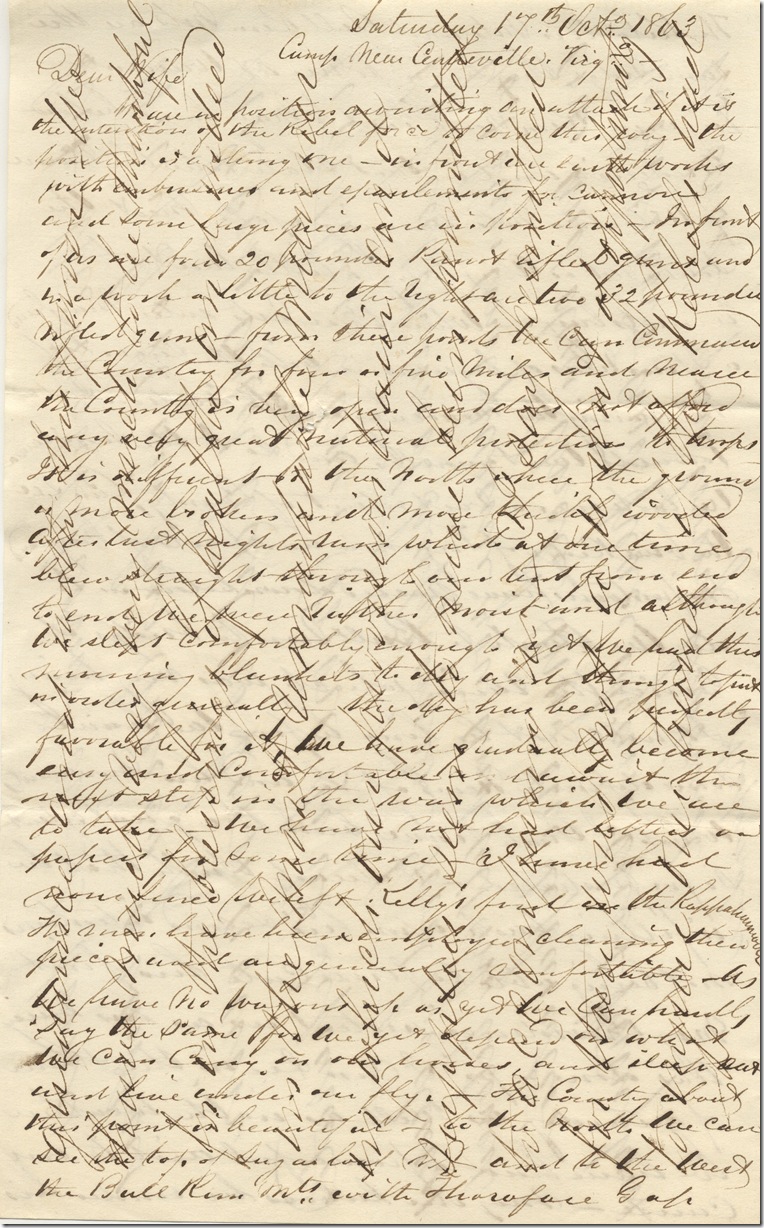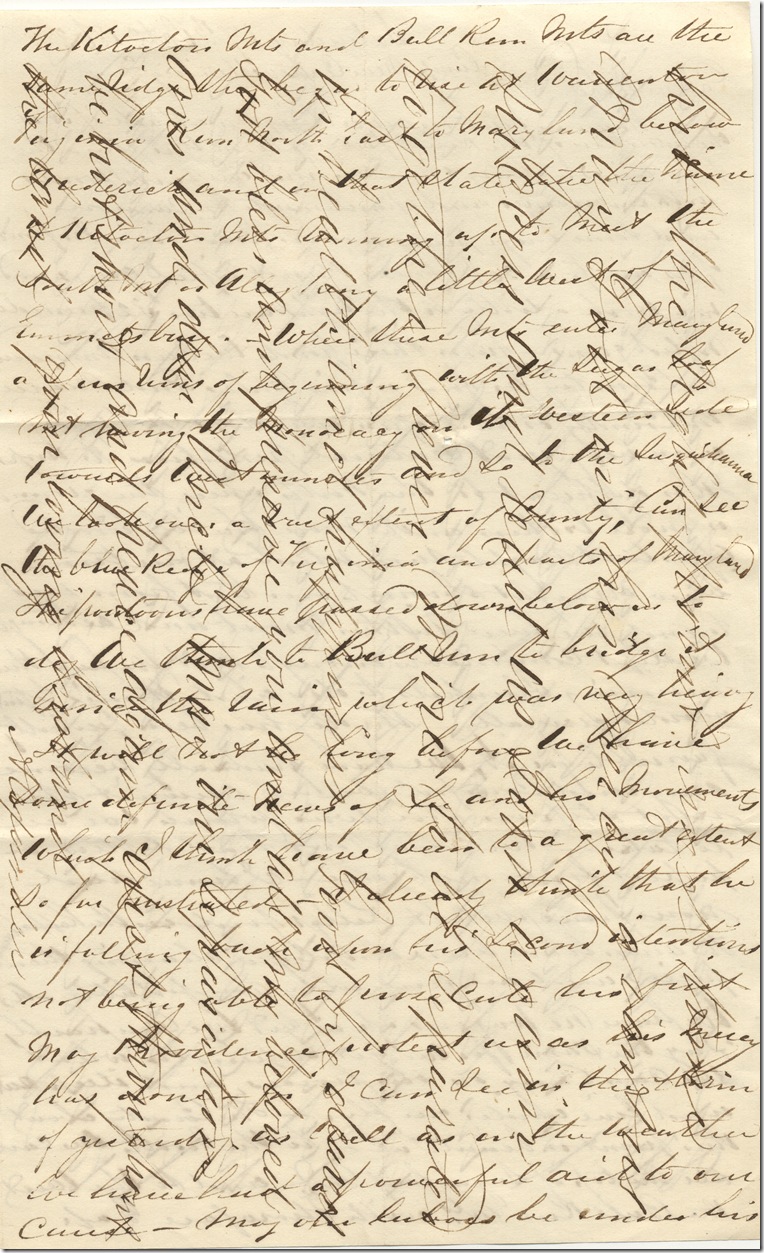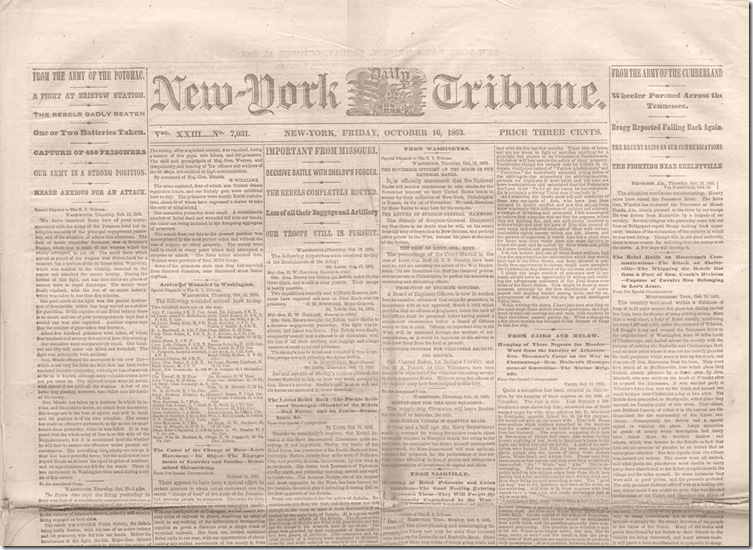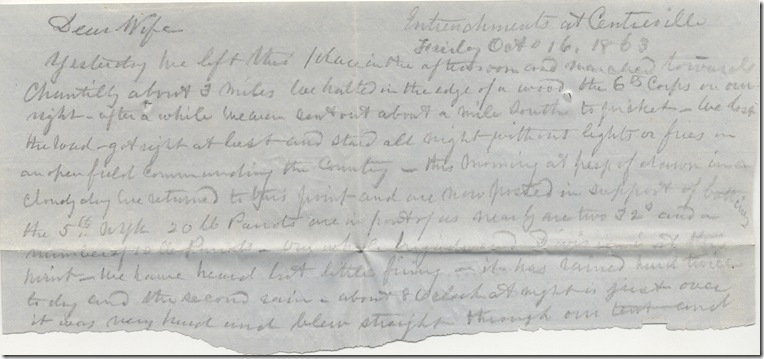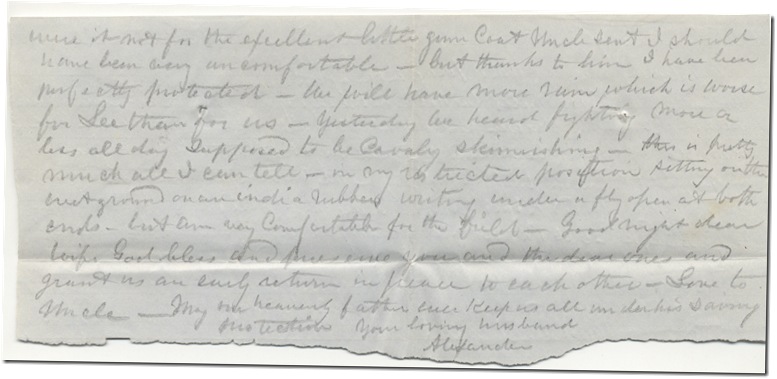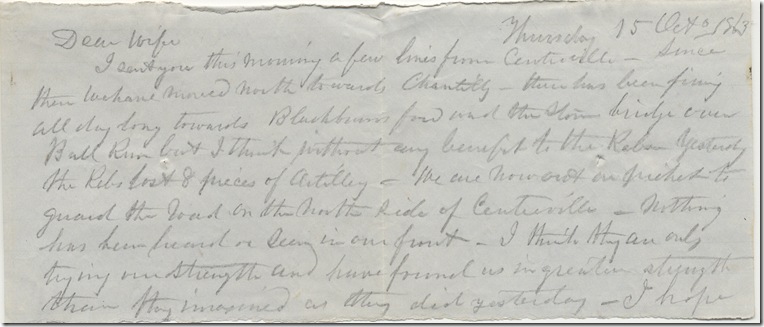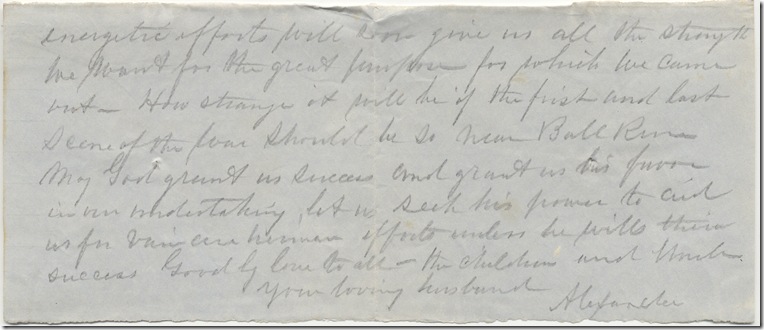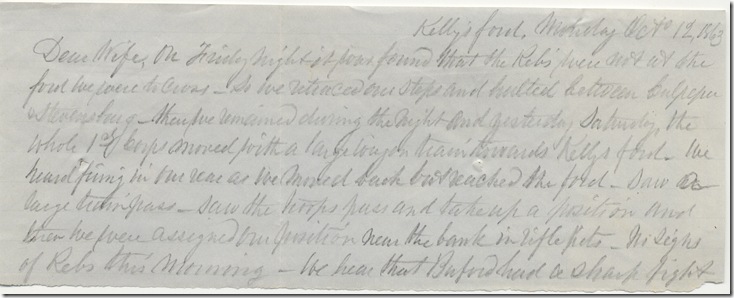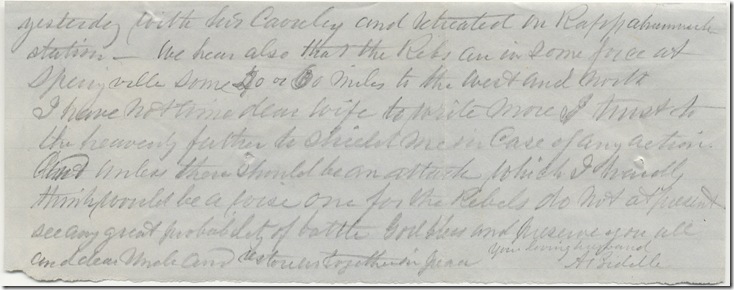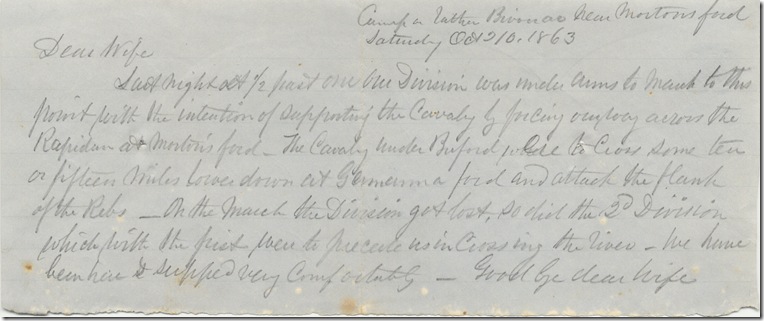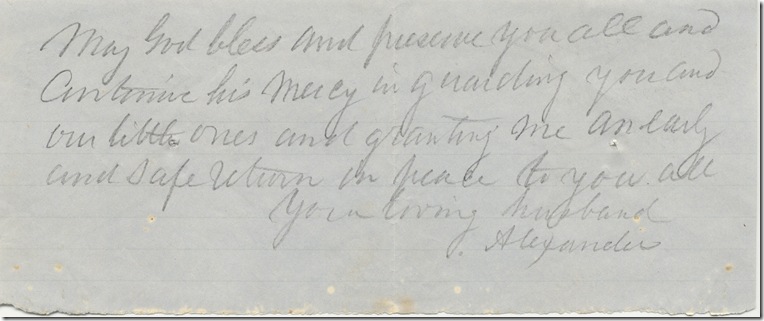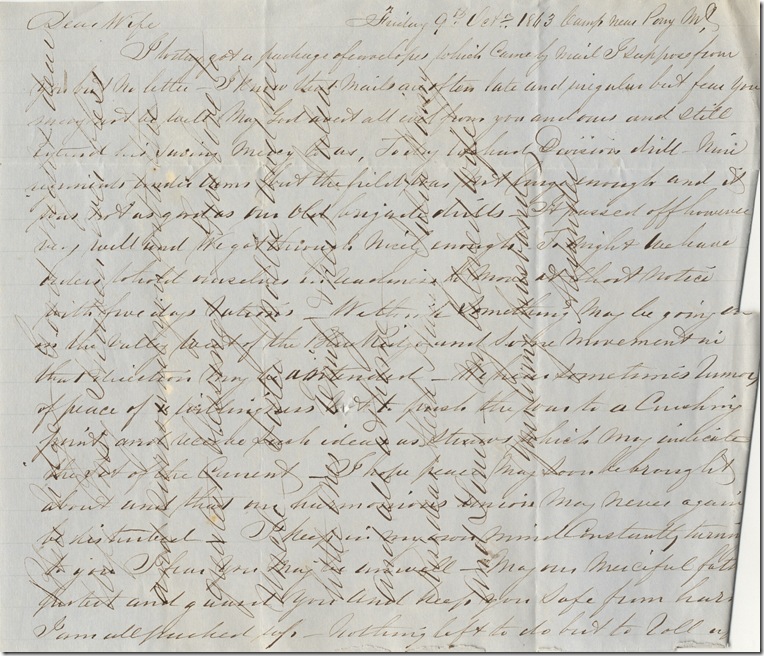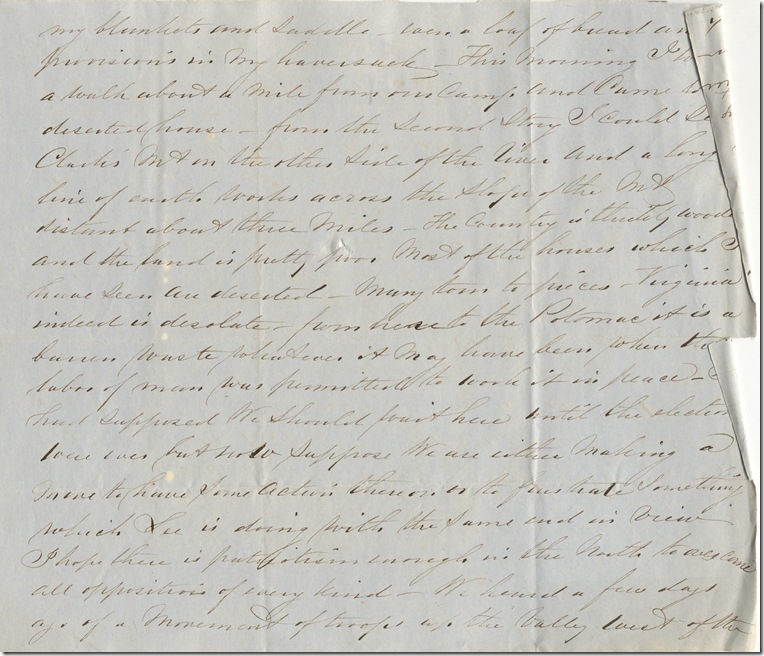Henry and Mary Warner lived in Allegheny City, Pennsylvania, now part of Pittsburgh. They are the great-grandparents of poet Marianne Moore. By the 1860s they had three surviving children: John, Henry, and Anne. Their letters to John, a Presbyterian minister living in Gettysburg, are preserved as part of Marianne Moore’s family papers.
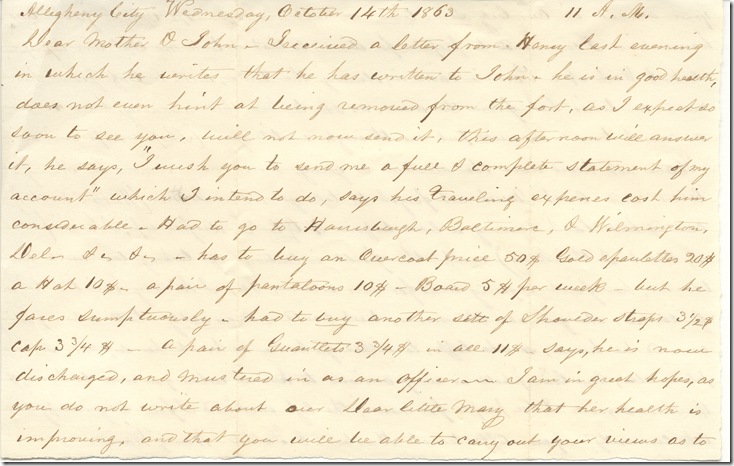
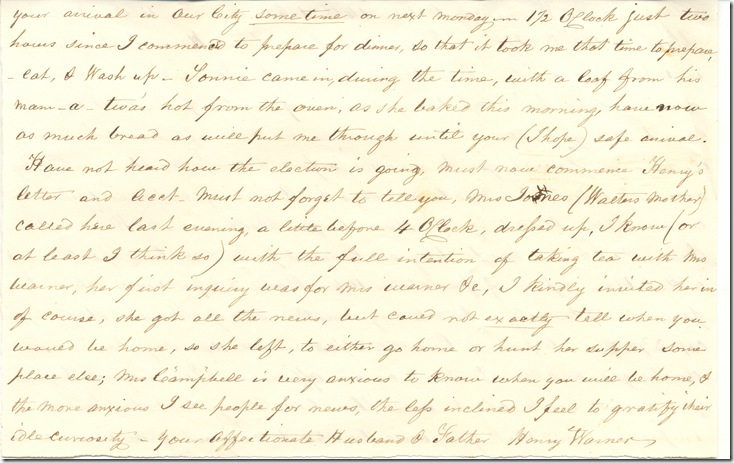
Transcript:
Allegheny City Wednesday, October 14th 1863 11 A.M.
Dear Mother & John—I received a letter from Henry last evening in which he writes that he has written to John—he is in good health, does not even hint at being removed from the fort, as I expect so soon to see you, will not now send it, this afternoon will answer it, he says, “I wish you to send me a full & complete statement of my account” which I intend to do, says his traveling expenses cost him considerable—Had to go to Harrisburgh, Baltimore, & Wilmington, Del. &c &c—has to buy an overcoat price 50$ Gold epaulettes 20$ a Hat 10$– a pair of pantaloons 10$– Board 5$ per week—but he fares sumptuously—had to buy another sett of Shoulder straps 3 1/2$ cap 3 ¾$– a pair of Gauntlets 3 ¾$ in all 11$– says, he is now discharged, and mustered in as an officer—I am in great hopes, as you do not write about our Dear little Mary that her health is improving, and that you will be able to carry out your views as to your arrival in our city sometime on next Monday—1 ½ Oclock just two hours since I commenced to prepare for dinner, so that it took me that time to prepare, eat, & wash up—Jonnie came in, during the time, with a loaf from his mam—a—twas’ hot from the oven, as she baked this morning, have now as much bread as will put me through until your (I hope) safe arrival. Have not heard how the election is going, must now commence Henry’s letter and Acct—Must not forget to tell you, Mrs Jones (Walters mother) called here last evening, a little before 4 Oclock, dressed up, I know (or at least I think so) with the full intention of taking tea with Mrs Warner, her first inquiry was for Mrs Warner &c, I kindly invited her in of course, she got all the news, but could not exactly tell when you would be home, so she left, to either go home or hunt her supper some place else; Mrs Campbell is very anxious to know when you will be home, & the more anxious I see people for news, the less inclined I feel to gratify their idle curiosity—Your affectionate Husband & Father
Henry Warner
Citation: Henry Warner, autograph letter signed to Mary Warner and John Riddle Warner. Allegheny City [Pittsburgh], 14 October 1863. Moore VI:05:24
